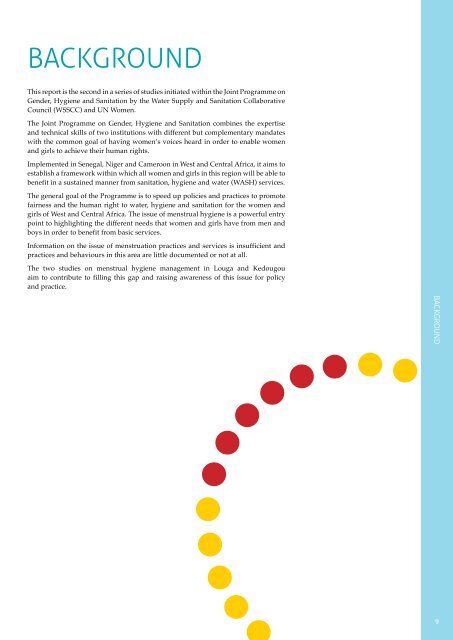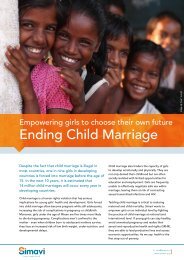1wE4FuZ
1wE4FuZ
1wE4FuZ
Create successful ePaper yourself
Turn your PDF publications into a flip-book with our unique Google optimized e-Paper software.
BackgroundThis report is the second in a series of studies initiated within the Joint Programme onGender, Hygiene and Sanitation by the Water Supply and Sanitation CollaborativeCouncil (WSSCC) and UN Women.The Joint Programme on Gender, Hygiene and Sanitation combines the expertiseand technical skills of two institutions with different but complementary mandateswith the common goal of having women’s voices heard in order to enable womenand girls to achieve their human rights.Implemented in Senegal, Niger and Cameroon in West and Central Africa, it aims toestablish a framework within which all women and girls in this region will be able tobenefit in a sustained manner from sanitation, hygiene and water (WASH) services.The general goal of the Programme is to speed up policies and practices to promotefairness and the human right to water, hygiene and sanitation for the women andgirls of West and Central Africa. The issue of menstrual hygiene is a powerful entrypoint to highlighting the different needs that women and girls have from men andboys in order to benefit from basic services.Information on the issue of menstruation practices and services is insufficient andpractices and behaviours in this area are little documented or not at all.The two studies on menstrual hygiene management in Louga and Kedougouaim to contribute to filling this gap and raising awareness of this issue for policyand practice.Background9



